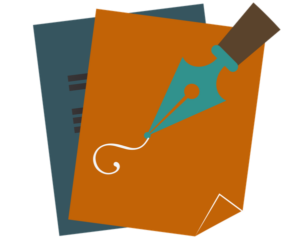
RESOURCES ON THE CRAFT OF WRITING
I get asked questions all the time about various aspects of the craft of writing—these are some of the articles I most often recommend. Note that I'll continue to add to these over time to continue building this library of resources.
Click on a category below to go straight to that section, or simply scroll down the page.
Browse All Articles on the Craft of Writing
Or click on a category below to go straight to that topic.
ARTICLES ABOUT THE CRAFT OF WRITING
On Adverbs and Adjectives
Why I Am Proudly, Strongly, and Happily in Favor of Adverbs, by Lily Rothman, The Atlantic
In Defense of Purple Prose, by Anne E.G. Nydum
On Backstory
How to Weave Backstory Into Your Novel, by Brian Klems
How to Weave in Backstory to Reveal Character, by Rachel Ballon
Weaving It In: Backstory in Fiction, by C.S. Lakin
On Character
Real People, Real Characters: The WHO of Memoir, by Michelle Richmond
Psychic Distance: What It Is and How to Use It, by Emma Darwin
On Dialogue
Seven Keys to Writing Good Dialogue, by Nathan Bransford
Stylized Talk: Writing Great Dialogue [with examples], by Ali Luke
He Said, She Said: Dialog Tags and Using Them Effectively, by Dawn Boeder Johnson at Scribophile
Said-Bookisms, the Obscure Sin that Can Doom a Manuscript, by D.B. Jackson
Talk It Out: How to Punctuate Dialogue in Your Prose, by Taylor Houston
Can You Make Up Dialogue In Memoirs Or Nonfiction Books? by Writer’s Relief
On Not Getting Sued—Writing Real People
How to Use Real People in Your Writing Without Ending Up in Court, by Helen Sedwick
On Endings
The Art of the Last Line: How to Find Your Story’s Ending, from NY Book Editors
6 Clever Ways To Achieve The Perfect Ending To Your Story, by Writer’s Edit
On Family in Memoir
How to Write About Family in a Memoir, by Brian Klems
But Will They Love Me When It’s Done? Writing about Family in Memoir, by Laurie Hertzel
On First Sentences
Why Stephen King Spends ‘Months and Even Years’ Writing Opening Sentences, by Joe Fassler, The Atlantic
On Flashbacks in Fiction
Using Flashbacks in Fiction, by Pearl Luke
Three Tips for Writing Successful Flashbacks, by Nancy Kress
How to Write a Flashback Scene: 7 Key Steps, from Now Novel
On Handwriting (v. Typing)
How Handwriting Trains the Brain: Forming Letters Is Key to Learning, Memory, Ideas, by Gwendolyn Bounds
Is Handwriting Dead? Hardly. We Need it More than Ever, by Anna Kucirkova
On Plot
Plot Development, from Texas A&M University
The Best Advice on Plotting I’ve Ever Heard: Two Tips That Will Make Plotting Easier, by Janice Hardy
Plot, Structure & Theme in Memoir, from Write Nonfiction Now
On Point of View
Point of View, from Literary Devices
What Every Writer Ought to Know About the Omniscient Point of View, by KM Weiland
Head-Hopping Gives Readers Whiplash, by Beth Hill
On Repetition
Sentence-level Repetition: When It Works, When It Doesn’t, and Why It Matters, from the Center for Writing and Speaking at Whitman College
The Power of Repetition, Beth Hill
On Setting and Place
How to Write Descriptions and Create a Sense of Place, by Harry Bingham, Jericho Writers
On Voice
What is Writer’s Voice, by Rachelle Gardner
Ten Steps to Finding Your Writer’s Voice, by Jeff Goins
GRAMMAR AND WRITING ASSISTANCE
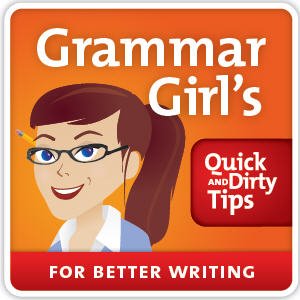
Grammar Girl’s Quick and Dirty Tips for Better Writing – I absolutely adore Grammar Girl, who’s also known as Mignon Fogarty. Hardly a day goes by when I don’t refer someone to a specific page of her incredibly helpful grammar tips, or look something up myself. She makes me look good because if I’m in doubt when responding to a query, she’s not! Have a question about grammar? Grammar Girl has an answer that will be easy to absorb thanks to her fun, example-laden and plain English explanations.
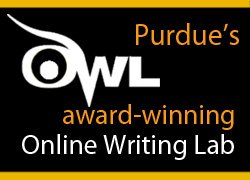
The Purdue Online Writing Lab – This site is chock full of great information about writing. Like Grammar Girl, the OWL has a lot of great information about grammar, but also goes well beyond grammar to look at the writing process, mechanics, punctuation, research, ESL and a whole host of topics related to academic writing. Each section provides numerous helpful examples, which make learning easy.
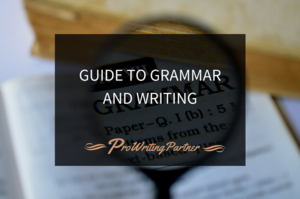
Guide to Grammar and Writing – Another great resource, from Lucy Benton at ProWritingPartner. Grammar myths, usage guides, style guides, thesauruses and dictionaries, English for non-native English speakers.
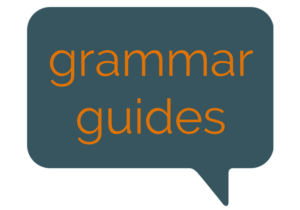
Great List of Grammar Guides – A long list of different grammar guides: quick guides, usage guides, thesauruses (thesauri) & dictionaries, “rules” that aren’t, classic style guide, science and technical writing guides and ESL.
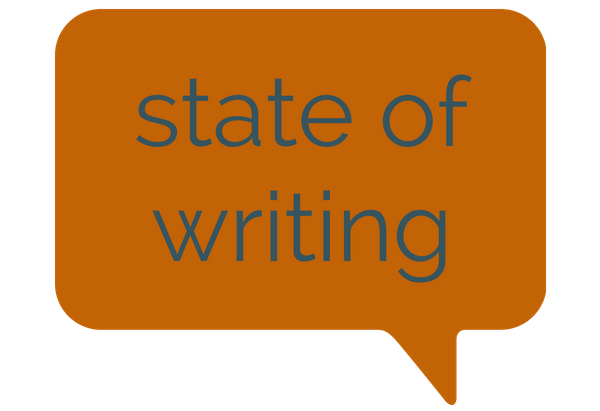
State of Writing – A comprehensive list of links to dictionaries and thesauruses, style guides, grammar and punctuation, etymology, quotations, and an extensive list of foreign language resources.
